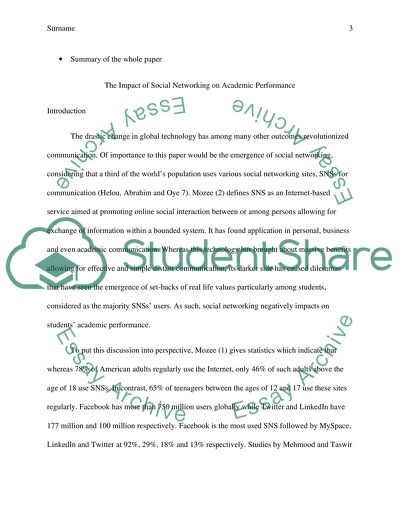Cite this document
(“The Impact of Social Networking on Academic Performance Essay”, n.d.)
The Impact of Social Networking on Academic Performance Essay. Retrieved from https://studentshare.org/education/1477965-the-impact-of-social-networking-on-academic-performance
The Impact of Social Networking on Academic Performance Essay. Retrieved from https://studentshare.org/education/1477965-the-impact-of-social-networking-on-academic-performance
(The Impact of Social Networking on Academic Performance Essay)
The Impact of Social Networking on Academic Performance Essay. https://studentshare.org/education/1477965-the-impact-of-social-networking-on-academic-performance.
The Impact of Social Networking on Academic Performance Essay. https://studentshare.org/education/1477965-the-impact-of-social-networking-on-academic-performance.
“The Impact of Social Networking on Academic Performance Essay”, n.d. https://studentshare.org/education/1477965-the-impact-of-social-networking-on-academic-performance.


